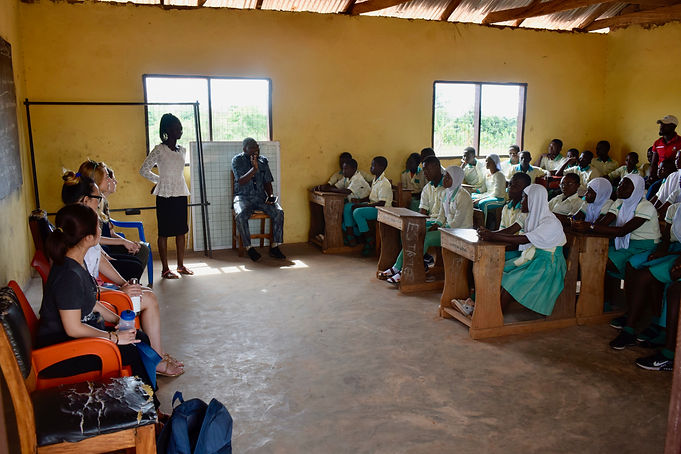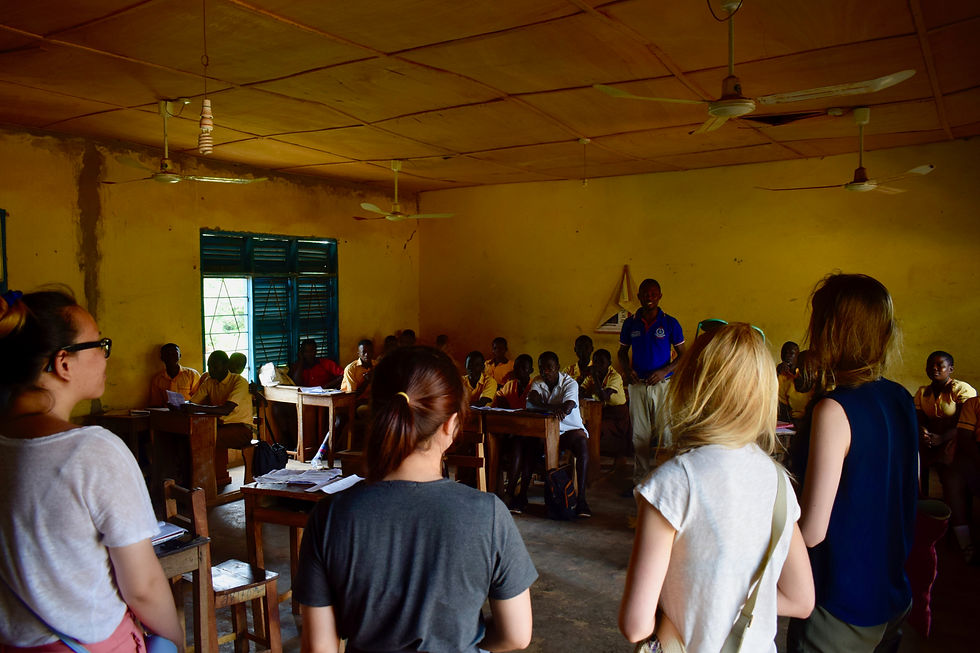
23rd March, 2019
Schools Interventions
Discussing With Children About Agrochemicals' Impacts
and Sustainable Agriculture
Monday 25th March was one of the highlights of our trip: we had the opportunity to visit two schools in Techiman- the Kranka Islamic and Baafi D/A basic school. These two schools are of small scale, with 230 students for the first one and even less for the other.
At the beginning of our visit, we had the chance to meet and discuss with the Kranka Islamic school’s Principal who informed us that his establishment had been in partnership with the Ghana Permaculture Institute for 4 years. We learned that thanks to this partnership with GPI, the school’s staff and students had received training on how to produce moringa at the school garden in a sustainable manner. This has been beneficial for the school as, once harvested, the moringa leaves and seeds are sold to GPI and the revenue received can be reinvested in the school.
Moreover, this partnership has been an opportunity for these students to learn about sustainable agriculture and to regularly visit GPI’s permaculture farm at Baafi. Raising awareness on the benefits of sustainable agriculture among students has also been beneficial for parents who work in farming as, through their children, they have been able to take advantage of this knowledge as well.
During these visits, we also had the chance to exchange with close to 40 pupils in a classroom. We were able to present our project and talk about the negative impacts agrochemicals have on health and the environment. Some students even revealed that they already had had some health issues such as headaches, stomach-aches, and eye problems due to exposure to agrochemicals.
However, we were pleased to hear that the majority of the students we met were aware of the negative side effects of chemical overuse. Some were even ready to encourage their parents involved in agriculture to transition towards more sustainable farming practices.
Overall, visiting these schools was highly beneficial for our project as it allowed us to reach another audience, which turns out to have a particularly important role to play in raising awareness on more sustainable methods. This experience also permitted us to witness GPI’s commitment to provide support to schools and educate Techiman's next generation on sustainable agriculture with the aim of encouraging them to adopt more sustainable alternatives in the future.





